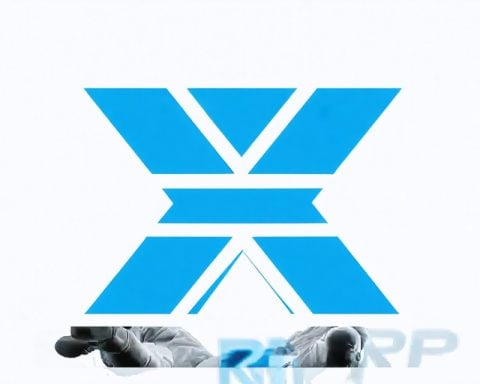The gaming landscape is evolving, and Xbox is at a crossroads. Microsoft has unveiled a bold strategy of moving away from exclusivity, aiming to make its Xbox games available across multiple platforms. This shift began with titles like Sea of Thieves and will continue with upcoming games, such as Indiana Jones. This trend raises questions about the appeal of purchasing Xbox hardware when such games can be accessed elsewhere, including PlayStation and Nintendo Switch.
During a recent discussion, Xbox CEO Phil Spencer emphasized a transformative vision for the brand, focusing on hardware capabilities over exclusive titles. He believes that gamers should choose devices based on their performance and the variety of experiences they offer. Notably, he highlighted the success of universally accessible games like Fortnite and Minecraft, suggesting that the future of gaming lies in broad accessibility.
Spencer reiterated that hardware remains fundamental to Xbox’s identity. He pointed out that while exclusive games might draw attention, the true goal is to create compelling hardware that supports gaming across multiple environments, including TVs and portable devices. He acknowledged the importance of seamless gameplay experiences that allow players to transition between devices effortlessly.
As Xbox forges a path of innovation and inclusivity, the challenge will be to communicate this new approach effectively. With quarterly declines in Xbox hardware sales, the gaming community is left pondering: Can this strategy of enticing multi-platform accessibility secure Xbox’s future in an ever-competitive market?
The Broader Impacts of Xbox’s Multi-Platform Strategy
The gaming industry’s shift towards multi-platform accessibility is more than just a business decision; it bears significant implications for society and the global economy. The dissolution of exclusivity in gaming could democratize access to high-quality games, allowing a wider audience to engage with premium content regardless of their hardware choices. This inclusivity could spark increased participation in gaming, particularly among demographic groups that have historically been marginalized in this space, fostering a more diverse gaming community.
Furthermore, this strategy could reshape the competitive landscape of the console market. With traditional boundaries blurred between platforms, companies may find themselves competing less on hardware and more on content and user experience. This could lead to greater collaboration across platforms, with more joint ventures on game development and cross-platform play, thereby enhancing the gaming experience for millions.
The environmental implications of this shift also deserve attention. Rather than continuously pushing the production of new hardware, a focus on software accessibility may lead to a reduction in e-waste, aligning with global sustainability goals. As consumer expectations evolve, the demand for greener alternatives in gaming technology will likely increase, prompting companies to innovate in environmentally friendly ways.
Looking ahead, trends towards cloud gaming and streaming services could significantly alter how gamers interact with content. As internet infrastructure improves globally, the accessibility of high-quality gaming content from various devices may become the norm, leading to a radical rethinking of where and how gaming fits into modern life. Ultimately, Xbox’s bold decision may not only redefine its future but also influence the entire gaming ecosystem—cultivating a culture that prioritizes inclusivity and sustainability in an increasingly digital world.
Microsoft’s Bold Move: Xbox’s Shift Towards Multi-Platform Gaming
The gaming landscape is witnessing a significant transformation as Microsoft redefines its approach with the Xbox brand. The recent unveiling of a strategy centered on multi-platform accessibility marks a critical pivot for the company, which has traditionally relied on exclusive titles to promote its hardware. This major shift not only aims to broaden the reach of Xbox games but also poses intriguing implications for the future of gaming consoles.
Expanding Accessibility: Recent Trends
Microsoft’s strategy began with successful multiplayer games like Sea of Thieves which embraced cross-platform play and has now expanded to include upcoming highly anticipated titles, such as Indiana Jones. This trend aligns with a broader industry movement towards inclusivity, as more developers recognize the benefits of making games available on various hardware platforms.
The Future of Hardware
Phil Spencer, the CEO of Xbox, has outlined his vision for the brand focusing on hardware capabilities instead of exclusive content. He believes modern gamers value performance and the range of experiences a device can offer. Universal games like Fortnite and Minecraft, which have enjoyed widespread acclaim, exemplify how compelling gameplay can transcend specific platforms.
Benefits and Challenges of Multi-Platform Release
Pros:
– Broader Player Base: By making games available on different platforms, developers can reach a larger audience, which can lead to increased sales and community engagement.
– Healthy Ecosystem: This approach encourages a healthier gaming ecosystem where players can enjoy multiplayer experiences across devices, enhancing social interactions.
Cons:
– Hardware Sales Decline: As games become accessible on various platforms, the motivation to purchase dedicated Xbox hardware could diminish, challenging Microsoft’s traditional console sales model.
– Brand Identity Risks: The potential dilution of brand identity could occur if consumers perceive Xbox merely as a publisher of content rather than a provider of exclusive experiences.
Market Analysis and Predictions
The shift towards a multi-platform approach is also inherently linked to market trends indicating growing consumer preference for accessibility. According to recent analyses, the gaming industry is expected to see a rise in demand for cloud gaming and subscription-based models, with services like Xbox Game Pass gaining traction. This trend suggests that Microsoft’s decision may not only be strategic but essential for sustainability in a changing marketplace.
Security Aspects to Consider
While expanding into multiple platforms holds great promise, it also introduces potential security concerns. Cross-platform compatibility increases the complexity of gaming environments, which can make them more susceptible to hacking and malicious attacks. Ensuring secure connections and protecting user data across various devices will be crucial for maintaining consumer trust.
Conclusion: Xbox’s Path Forward
As Microsoft navigates this new landscape of gaming, its success will depend on how effectively it communicates its vision of innovative hardware and accessible gaming. While challenges lie ahead, the focus on creating engaging gaming experiences across all platforms could very well position Xbox as a leader in the next generation of gaming. The question remains: Can Microsoft’s diversified strategy secure its future against fierce competitors like PlayStation and Nintendo?
For more updates on gaming trends and strategies, visit Xbox.

















